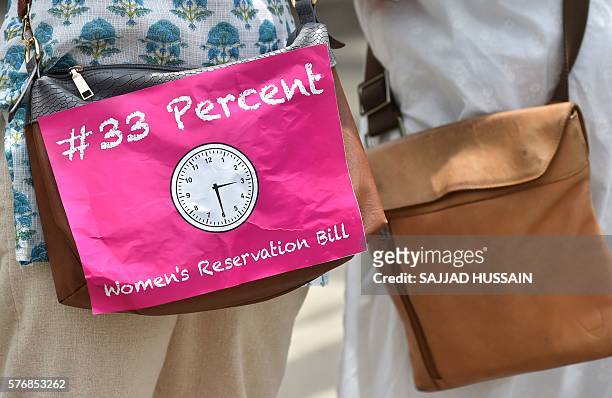Ishika Kumar, Pune
The government introduced the Women’s Reservation Bill, called the ‘Nari Shakti Vandan Adhiniyam’ in the Lok Sabha on Wednesday, 20th September 2023, which is the Constitution (128th Amendment) Bill, 2023.
The bill aims to provide one-third of the seats in the Parliament to women which is 33% of reservation in the Lok Sabha and State legislative assemblies across the nation, including people belonging to the Scheduled Tribes (STs) and Scheduled Castes (SCs). It was tabled in the Lok Sabha on Tuesday, and members cast their votes for the progression of the bill through the medium of slips. 454 MPs voted in favour of the bill while two of them voted against it. Asaduddin Owaisi and Imtiaz Jaleel MPs of AIMIM were the two legislators who voted against the bill in Lok Sabha.
The Bill was introduced by the Union Minister of State for Law and Justice Shri. Arjun Ram Meghwal on Tuesday, 19th September 2023. Similar legislation was in motion once upon a time back in 2000. In 2010 that bill was passed in the Rajya Sabha yet, it failed to see the light of the day.
These amendments are being made through the inclusion of Articles 330A, 332A and 334A.
The insertion of Article 334A requires the exercise of delimitation to be undertaken for this purpose or else, reservation of seats for women shall not come into effect. Delimitation is, “the act or process of fixing limits or boundaries of territorial constituencies in a country or a province having a legislative body”. Demographic changes in a state or union territory are updated, as a particular set number of voters have each of their own representatives in the Lok Sabha as well as in the state assemblies countrywide. Hence, it is imperative that this exercise be carried out every census.
Delimitation is a constitutional exercise conducted in accordance with the procedure prescribed in Article 82 of the Indian Constitution. Article 334A also conveys that the rotation of seats reserved shall take effect after each subsequent exercise of delimitation. Before this process is undertaken, it is of utmost necessity for the Modi government to conduct the Census, which results in the cementing of the foundation for carrying out the delimitation exercise.
Yogi Adityanath in a post on ‘X’ said, “The ‘Nari Shakti Vandan Adhiniyam’ presented by Prime Minister Narendra Modi in the Lok Sabha today is a Yugantkari or, a revolutionary step towards women empowerment.”. Sonia Gandhi (Congress Parliamentary Party Chairperson) reflected support but called out its dependency on the census and the delimitation exercise, further emphasizing the need for a caste-based census to ensure reservation for women belonging to other backward classes (OBCs), as well. Bahujan Samaj Party’s (BSP) Sangeeta Azad put forth a demand for 50% reservation instead of 33%.
Responding to the grievances of opposition parties regarding reservations for OBCs, Arjun Ram Meghwal stated, “How will you decide which seats are to be reserved? If we do it that way, you (the opposition) will file a PIL in Supreme Court,”.
Despite the ongoing debates in the Rajya Sabha, with the support of some opposition members including the Congress, it is expected to be cleared by both the Houses soon.
